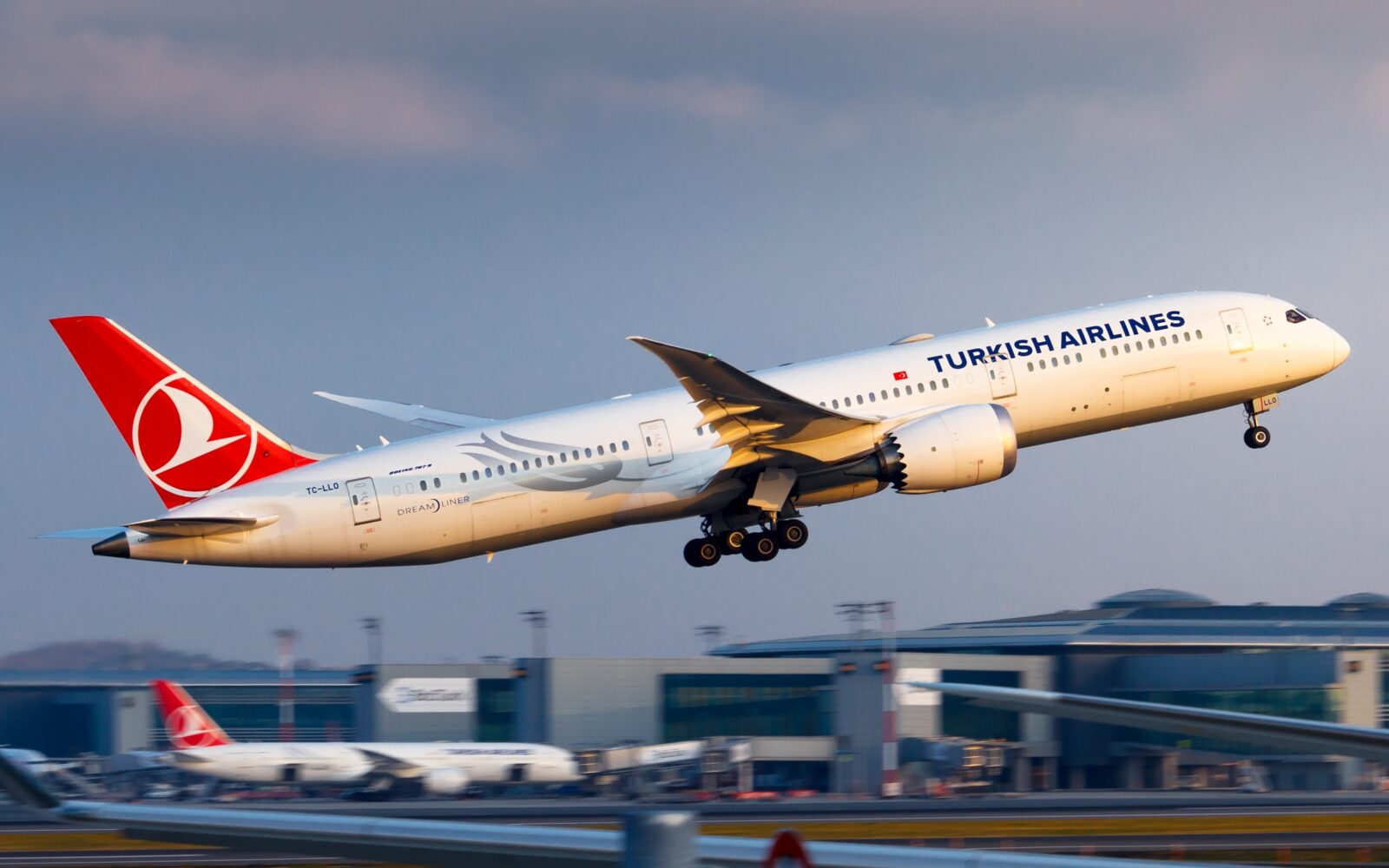
A spokesperson for Turkish Airlines has said that bedbugs are a ‘common problem’ and that the Istanbul-based carrier is taking seriously a slew of complaints from passengers who claim that they have been bitten by the creepy crawlies that feast on human blood.
The response from Turkish Airlines comes after a New York Times report on an apparent bedbug infestation that affected several of the carrier’s planes servicing routes between its hub and the United States.
In one case, passenger Matthew Myers, 28, who was flying with his girlfriend from Istanbul to San Francisco, said bedbugs – whose scientific name is Cinex lectularius – were falling from the ceiling and were spotted on multiple cabin seats.
Passengers were so alarmed by the bedbugs that they tried to move to any open seat as far away from where they had been spotted as possible. One passenger even ended up sitting in an empty flight attendant jumpseat.
In another case, Kristin Bourgeois, 37, says she spotted bedbugs on her blanket and pillow during a 10-hour flight from Washington Dulles Airport to Istanbul. Kristin says she was left with 13 itchy bite marks as a result of the bedbugs.
Turkish Airlines demanded medical evidence before it opened an investigation into Kristen’s complaint and ultimately credited her just 5,000 frequent flyer miles for her pain.
Meanwhile, Matthew was offered a 10% discount on a future flight booking.
Airline spokesperson Yahya Üstün, however, says that bedbugs are a “common problem” that are encountered in a number of public places, such as hotels and airplanes, from “time to time.”
“Regarding the bedbug news in some media outlets, we would like to state that Turkish Airlines meticulously maintains its commitment to the highest standards in terms of safety and comfort,” Üstün said in a statement posted to X.
“Our aircraft are regularly cleaned and thoroughly disinfected before each flight as part of our general routine,” Üstün continued.
Bedbug infestations are notoriously difficult to get rid of – partly because they can live for months without feeding and are resistant to common insecticides. In domestic settings, extreme heat treatment is often the primary method to kill bedbugs, but this method can’t be used on commercial aircraft.
Üstün says Turkish Airlines is working with aircraft manufacturers like Airbus and Boeing to develop new methods to safely rid airplane cabins of bedbugs, although this is clearly still a work in progress.
It has to be said that Turkish Airlines is certainly not alone in dealing with bedbugs on its aircraft.
Although much of the attention on bedbug infestations has fallen on hotels – especially in certain cities like New York or Paris, which was experiencing a surge in bedbug infestations in the run-up to last summer’s Olympic Games, airlines are most certainly not immune.
In 2018, British Airways faced criticism after a wave of bedbug incidents culminated in Ghana’s aviation minister threatening to ban the airline from flying to the West African nation unless the situation was dealt with.
In the end, British Airways introduced a deep cleaning program to address the bedbug complaints, as well as concerns over the general uncleanliness of its airplanes.
The airline maintains, however, that bedbug incidents are “extremely rare” given the number of flights it operates every year.
Last October, a passenger on an American Airlines flight operated by Republic Airways from LaGuardia to Detroit said they discovered a bedbug crawling up their leg during the short regional flight.
United Airlines flight attendants were recently told to ditch fabric suitcases in favor of hardshell luggage with smooth surfaces, which make it harder for bedbugs to hitch a ride.
Flight attendants at the Chicago-based carrier were also advised to avoid laying their cases on hotel carpets and bagging clothing in ziplock bags.
Related
Mateusz Maszczynski honed his skills as an international flight attendant at the most prominent airline in the Middle East and has been flying ever since... most recently for a well known European airline. Matt is passionate about the aviation industry and has become an expert in passenger experience and human-centric stories. Always keeping an ear close to the ground, Matt's industry insights, analysis and news coverage is frequently relied upon by some of the biggest names in journalism.








I’m surprised that Turkish even gave any compensation and actually is admitting this. Their customer service is the among the worst I’ve ever seen.
So true!